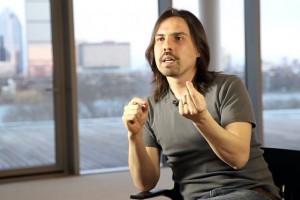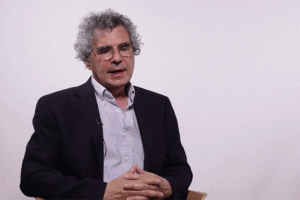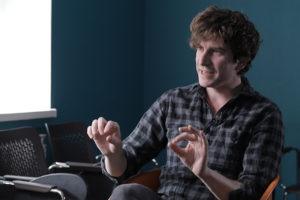Meritocracy and Topocracy of Networks
Economist Cesar Hidalgo on the meritocratic system, rock star behavior, and market mechanisms
What are the solutions to the liar paradox? How do we define truth? Why wasn’t Buridan killed? These and other questions are answered by Professor Emeritus of History and Philosophy of Logic in the Arché Research Centre for Logic, Language, Metaphysics and Epistemology, Stephen Read.
I’m going to talk about the liar paradox, which the paradox which was invented by Epimenides in the 4th century BC about the proposition ‘I’m lying’, or, put another way, ‘What I’m saying is false’, ‘The sentence I’m uttering is false’. And if we think about that sentence, we say ‘Well, suppose it’s true’, then, if it’s true, things must be as he says they are, and he says it’s false, so if its true, it’s false.
It looks as if we’ve got a challenge here to explain how we give a proper theory of truth that avoids these paradoxes and contradictions, and I want to think about some medieval solutions to this. The solutions to this have been around right since the Ancient Greeks, and it’s a big problem in modern philosophy of language and philosophical logic. A quite interesting solution is that the Medievals produced for this, and I’ll focus on just three solutions in particular. Perhaps, you want to say it’s neither true nor false – it’s neither true or not true – can we motivate something along these lines?
Utterances can perhaps mean more than they look at a first sight as if they mean. If we take another version of the liar paradox, the one that is due to Epimenides, he said: ‘All Cretans are liars’. But when he said ‘All Cretans are liars’, he wasn’t just saying ‘All Cretans are liars’, he was also saying that he himself is a liar. That’s implicit in what he said. And his idea was that when I say something, I’m also at the same time saying all the things that follow from what I said. And then he had a very clever argument that if I’m actually saying that everything I said is false, any utterance that says of itself that it’s false also says of itself that it’s true.

Economist Cesar Hidalgo on the meritocratic system, rock star behavior, and market mechanisms

Philosopher Daniel M. Hausman on social equality, luck egalitarianism, and people’s relations

Historian Peter Jones on three theories of laughter, humour as a way of doing politics and how laughter was pe...